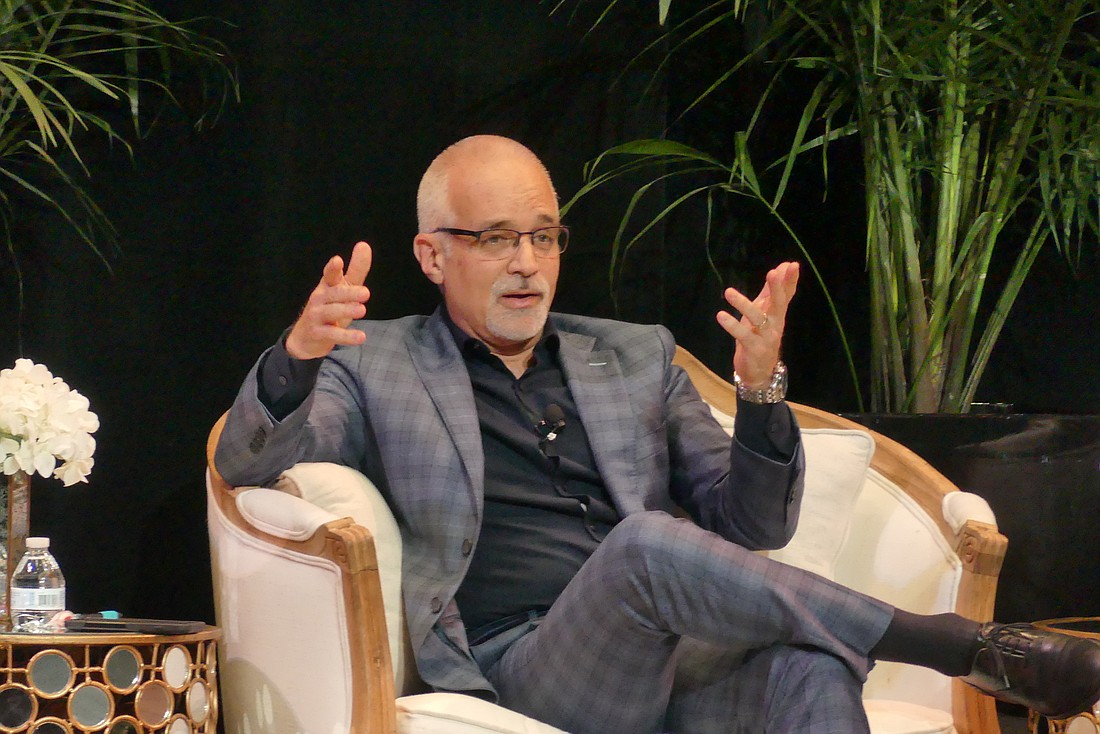
To thrive, a business must keep pace with the changing needs and desires of its customers while adapting to the accelerating rate of change in consumers’ expectations and requirements.
How three local businesses representing health care, news media and supply chain logistics are responding to the evolving environment was the subject of a panel discussion April 16 at the Florida State College at Jacksonville Business Speaker Series presented by Florida First Credit Union.
Moderated by Melissa Ross, host and producer of WJCT FM-89.9’s First Coast Connect public affairs radio program, the panel comprised Lloyd Carter, director of operations at Beaver Street Fisheries; Bob Longo, general manager of Cox Media Group’s Action News on WFOX TV-30, WJAX TV-47; and Dr. Ryan Uitti, medical director of the Mayo Clinic Robert D. and Patricia E. Kern Center for the Science of Health Care Delivery.
“In business, the culture has to be to embrace change,” Longo said.
The change cited by the panelists as affecting all of their businesses is digital technology, including the universal availability and speed of information on the internet.
Carter’s company processes and sells frozen seafood for customers across the U.S. and delivers from its facility in Jacksonville and from regional distribution centers.
He said the increased velocity of information has changed customers’ expectations.
“When you press that ‘submit’ button, you want the product yesterday,” Carter said.
Uitti said technology has been changing health care for decades. He gave as an example when computerized tomography revolutionized X-rays.
“The CT scanner was introduced in 1971 and it transformed how we operate. Now, with technology, a CT scan can be transferred to a smartphone and we can diagnose, we can treat patients at a distance,” said Uitti.
Longo said smartphone technology has changed how news is consumed and delivered. It’s faster and the territory is larger.
“Media used to be a local enterprise. Now it’s everywhere, all the time. It’s a much more competitive world, and you have it in your hand,” he said.
For Beaver Street Fisheries, delivery involves loading boxes onto trucks and sending the trucks to the customers. Carter said technology is changing those operations on the most basic levels.
Artificial intelligence systems are being developed that will help distributors plan inventory delivery routes, based on customer usage patterns, he said.
Technology also is poised to revolutionize commercial transportation in the next several years. That’s partly because of advances in hardware and software but more because seeking a career as a truck driver is not popular among young people, he said.
There’s also the issue of the public accepting the changes.
“You can’t get a millennial to drive a truck,” Carter said.
As for automated vehicles, “the trucks are there now, but we’re not comfortable with a truck driving alongside us at 60 miles an hour without a driver,” he said.
Longo said it’s difficult to predict how news will be covered and delivered, but he said robot news anchors are a possibility, in addition to a format in which the viewer could interact with the people covering a story.
“Things will be automated because technology is moving so fast,” he said.
What he called “the acceleration of knowledge transfer” has been a surprise, Uitti said. Research into treatments for HIV and hepatitis C has been advanced by years because, with current technology, scientists easily can share theories and results.
“Transferring discoveries can lead to a legion of people working on a problem,” he said.
But artificial intelligence and high-speed communication likely won’t take over entirely.
“What’s important is trust. Patients come in and ‘Dr. Google’ has already figured it out, but they still come to see me,” Uitti said.
“The human aspect drives decisions,” Longo said.
The next installment of the FSCJ Business Speaker Series is at 8:30 a.m. May 23 when the topic at the Kent Campus main auditorium will be “Disaster and Emergency Preparedness: Storm Planning.”